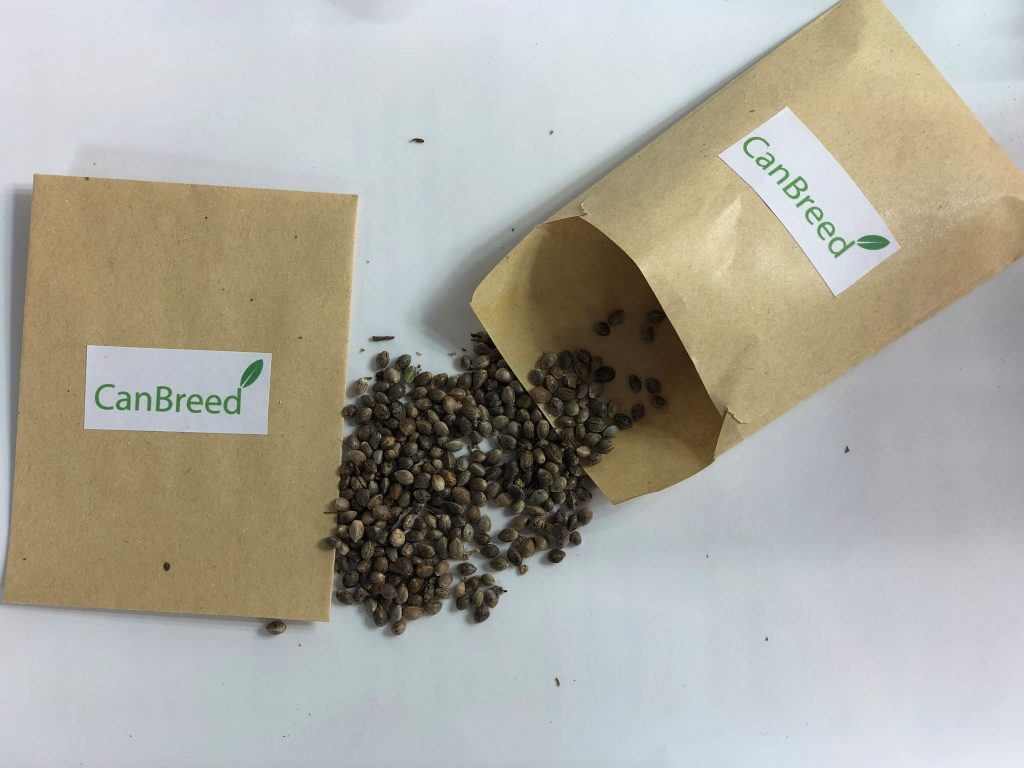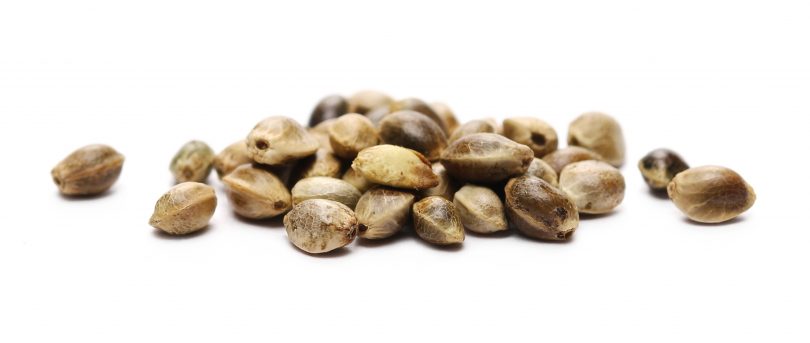(PRESS RELEASE): Marketing of CanBreed stable Cannabis seeds, which will enable standardization in the Cannabis industry, is expected during 2021
CanBreed, a leading Israeli Cannabis genetics and seeds company engaged in the development and enhancement of Cannabis seeds, is proud to announce that it has completed the development of the first known stable and uniform Cannabis hybrid seeds in the world. In doing so, the company brings a solution to the main problem of the Cannabis industry that suffers from lack of uniformity and standardization due to the absence of genetic stability in Cannabis plants resulting also in high production costs that hamper growers’ profits. Stable and uniform hybrid seeds, with improved genetics, are the solution to both these problems.
In June 2020, after more than three years of strenuous research and development, CanBreed completed the development of the first uniform homozygous (100% stable) Cannabis parental lines. Crosses between these parental lines creates the world’s first true F1 hybrids Cannabis seeds. The company has completed the first F1 hybrid seed production cycle in the world. These stable hybrids will ensure the reproducibility, standardization and high quality of raw material for the entire Cannabis industry.
In the present cycle, CanBreed produced dozens of stable new varieties from diverse genetic backgrounds, which will be planted for testing in CanBreed’s breeding and seeds production farm that is at its final stages of construction. At the end of the selection phase, which is expected to be completed during the first half of 2021, the seeds of the varieties that fit industry demands will be marketed.
Unlike most agricultural crops that are grown from stable seeds, Cannabis plants are presently propagated vegetatively through cloning by using cuttings from mother plants. Cloning is done in order to ensure genetic identity between the offspring and the mother plants, which until now could not be achieved by growing Cannabis from seeds because there were no stable Cannabis seeds.
The main cause of the lack of standardization that exists in the industry is that the raw material extracted from Cannabis plants grown from cuttings is not reproducible. On one hand, cloning ensures a genetic identity between the offspring and the mother plant, but on the other hand, the cloning methods that exist today (such as tissue cultures) do not prevent the aging of the mother plants. Thus, similar to the natural aging processes that take place in any living organism (including humans) mother plants accumulate aging related mutations and changes in the
genome that cause differences in the chemical profile of the plant. This leads to the fact that despite being genetically identical, the chemical profile of offspring differs from those of the young mother plants.
The reason that until now it was not possible to get reproducible and uniform Cannabis products by growing Cannabis from seeds is that all Cannabis strains in the market today are heterozygous (genetically unstable) and crossing between two unstable Cannabis strains will produce seeds with high genetic variation. Thus, today every seed grown on a plant produced from the crossing of two unstable plants is genetically different from all the other seeds on the same plant. The fact that all the seeds are different from each other in a particular Cannabis plant means that plants grown from these seeds, even though they originated from the same plant, will have a different genetic profile. Therefore, to this day, the only method available for Cannabis growers to preserve the genetic identity of the offsprings has been through cloning of mother plants.

The solution to the problem comes from the seeds industry.
In the agricultural industry, plants, such as tomatoes, corn, watermelon, etc, are grown exclusively from stable seeds thus ensuring genetic uniformity that enables high quality growing and reproducibility of the products.
Stable seeds, such as tomato seeds, corn, etc. used in the agricultural industry, are produced from homozygous parental lines (plants that are 100% genetically stable). The procedure of creating homozygous plants requires dedicated resources, unique agronomic and scientific knowledge and consumes considerable time. Crossing of two different homozygous plants will produce seeds that are genetically identical, meaning that all the resultant seeds of the crossing will have the same DNA (identical twins). These seeds are known in the seed industry as F1 Hybrid seeds. Using F1 Hybrid seeds will always result in plants identical to each other, thus eliminating the need for cloning of Cannabis and Hemp and ensuring the reproducibility and uniformity of the raw material extracted from the plant.
In parallel to the development of stable seeds, CanBreed is developing YieldMaxTM, an enhanced genetic trait platform, which contains all the agronomic traits that Cannabis and Hemp growers need for consistent, high-quality, cost efficient mass-scale cultivation. The breeding of the YieldMaxTM traits is achieved by using CRISPR-Cas9, an innovative gene editing technology. Upon completion of the YieldMaxTM development, the stable seeds of CanBreed will contain also these traits.
At November, CanBreed announced that as part of its project to develop a Powdery Mildew resistance trait, which is one of the traits in the YieldMaxTM platform, the company performed and identified an editing event in the Cannabis plant genome using CRISPR-Cas9. This report follows the company’s announcement on signing a commercial license agreement for CRISPR-Cas9 foundational patents with the CRISPR patent owners – Corteva Biosciences and Broad Institute
(of MIT and Harvard). The CRISPR developers were recently awarded with the Nobel Prize in Chemistry for 2020.
The company further announced recently that it had purchased a 3.5-acre farm in San Diego county in California. A production facility of stable hemp seeds intended for the US market is planned to be set-up at the farm. The farm’s initial output is expected to be about 12.5 million seeds annually, which will subsequently increase to about 50 million seeds annually.
Ido Margalit, CanBreed CEO: “The company’s achievement comes after nearly four challenging years of development as the company faces extensive knowledge and infrastructure gaps in the field of Cannabis seeds, and in parallel invests in market education regarding the feasibility of developing stable Cannabis and Hemp seeds. CanBreed’s achievement, first of its kind in the world, positions the company at the forefront of this emerging industry that will provide a solution to a huge global potential market of Cannabis and Hemp seeds, estimated at hundreds of millions of dollars a year”.
About CanBreed
Founded in 2017, CanBreed’s goal is to increase the profitability of Cannabis farming, while enabling growers to supply uniform and high-quality raw material to Cannabis-based industries. The company is based in Israel, where the use of Medical Cannabis is legally permissible, operating one of the largest R&D Center and a seed trialing and production facility in the country. CanBreed is managed and staffed by a multidisciplinary team of dedicated seed and genetics professionals.









